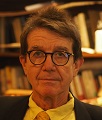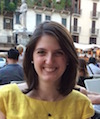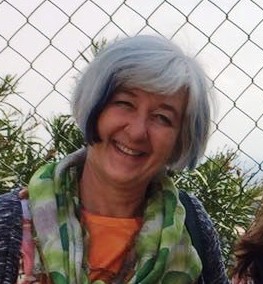Studying at the University of Verona
Here you can find information on the organisational aspects of the Programme, lecture timetables, learning activities and useful contact details for your time at the University, from enrolment to graduation.
Academic calendar
The academic calendar shows the deadlines and scheduled events that are relevant to students, teaching and technical-administrative staff of the University. Public holidays and University closures are also indicated. The academic year normally begins on 1 October each year and ends on 30 September of the following year.
Course calendar
The Academic Calendar sets out the degree programme lecture and exam timetables, as well as the relevant university closure dates..
| Period | From | To |
|---|---|---|
| I semestre | Oct 1, 2018 | Jan 12, 2019 |
| II semestre | Feb 18, 2019 | Jun 1, 2019 |
| Session | From | To |
|---|---|---|
| ESAMI LINGUE- sessione invernale | Jan 14, 2019 | Feb 16, 2019 |
| ESAMI LINGUE- sessione estiva | Jun 3, 2019 | Jul 27, 2019 |
| ESAMI LINGUE- sessione autunnale | Aug 26, 2019 | Sep 21, 2019 |
| Session | From | To |
|---|---|---|
| LAUREE LINGUE - sessione autunnale (a.a. 2017/18) | Nov 12, 2018 | Nov 17, 2018 |
| LAUREE LINGUE - sessione straordinaria (a.a. 2017/18) | Apr 1, 2019 | Apr 6, 2019 |
| LAUREE LINGUE - sessione estiva (a.a. 2018/19) | Jul 8, 2019 | Jul 13, 2019 |
| LAUREE LINGUE - sessione autunnale (a.a. 2018/19) | Nov 4, 2019 | Nov 9, 2019 |
| LAUREE LINGUE - sessione straordinaria (a.a. 2018/19) | Mar 30, 2020 | Apr 4, 2020 |
| Period | From | To |
|---|---|---|
| Festa di Ognissanti | Nov 1, 2018 | Nov 1, 2018 |
| Sospensione dell'attività didattica | Nov 2, 2018 | Nov 3, 2018 |
| Festa dell’Immacolata | Dec 8, 2018 | Dec 8, 2018 |
| VACANZE DI NATALE | Dec 22, 2018 | Jan 6, 2019 |
| VACANZE DI PASQUA | Apr 19, 2019 | Apr 23, 2019 |
| Sospensione dell'attività didattica | Apr 24, 2019 | Apr 24, 2019 |
| FESTA DELLA LIBERAZIONE | Apr 25, 2019 | Apr 25, 2019 |
| Festa del lavoro | May 1, 2019 | May 1, 2019 |
| Sospensione dell'attività didattica | May 20, 2019 | May 20, 2019 |
| Festa del Santo Patrono | May 21, 2019 | May 21, 2019 |
| VACANZE ESTIVE | Aug 13, 2019 | Aug 18, 2019 |
Exam calendar
Exam dates and rounds are managed by the relevant Foreign Languages and Literatures Teaching and Student Services Unit.
To view all the exam sessions available, please use the Exam dashboard on ESSE3.
If you forgot your login details or have problems logging in, please contact the relevant IT HelpDesk, or check the login details recovery web page.
Academic staff
 flavia.palma@univr.it
flavia.palma@univr.it
 sara.paolini@univr.it
sara.paolini@univr.it
 silvia.zollo@univr.it
silvia.zollo@univr.it
Study Plan
The Study Plan includes all modules, teaching and learning activities that each student will need to undertake during their time at the University.
Please select your Study Plan based on your enrollment year.
1° Year
| Modules | Credits | TAF | SSD |
|---|
1st foreign language2nd foreign language1st foreign literature 1 lm. Forms, genres and critical approaches2nd foreign literature 1 lm. Forms, genres and critical approaches2° Year activated in the A.Y. 2019/2020
| Modules | Credits | TAF | SSD |
|---|
1st or 2nd foreign literature 2 lm. Critical methodologies and textual interpretation1st foreign literature disciplinary area2nd foreign literature disciplinary area or textual and comparative studiesA philology to be chosen among the following (philology must be related to one of the chosen languages)History of the 1st or the 2nd foreign language| Modules | Credits | TAF | SSD |
|---|
1st foreign language2nd foreign language1st foreign literature 1 lm. Forms, genres and critical approaches2nd foreign literature 1 lm. Forms, genres and critical approaches| Modules | Credits | TAF | SSD |
|---|
1st or 2nd foreign literature 2 lm. Critical methodologies and textual interpretation1st foreign literature disciplinary area2nd foreign literature disciplinary area or textual and comparative studiesA philology to be chosen among the following (philology must be related to one of the chosen languages)History of the 1st or the 2nd foreign language| Modules | Credits | TAF | SSD |
|---|
Legend | Type of training activity (TTA)
TAF (Type of Educational Activity) All courses and activities are classified into different types of educational activities, indicated by a letter.
Themes, forms and genres of Spanish-American literature (2019/2020)
Teaching code
4S002992
Teacher
Coordinator
Credits
6
Language
Spanish
Scientific Disciplinary Sector (SSD)
L-LIN/06 - LATIN AMERICAN LANGUAGES AND LITERATURES
Period
II semestre (Lingue e letterature straniere) dal Feb 17, 2020 al May 30, 2020.
Learning outcomes
The main educational objective of the Master’s Degree in Comparative European and Non-European Languages and Literatures is to provide specialized comparative preparation of Spanish-American literature in its critical and interpretation of the text methodologies.
The skills and abilities acquired will turn to interdiscipli-nary approaches, to the study of critical methodologies concerning reading, translation and critical analysis of texts in foreign languages and to high-level written pro-duction. In this way, the student will acquire skills in Spanish language presentation, both in terms of content and critical processes in intertextual and intercultural contexts, also in view of a possible high level professional approach and further developments in the academic field, such as the PhD.
The expected learning outcomes are as follows:
- Knowledge and understanding: at the end of the course the student must have acquired advanced knowledge about the Hispano-American literary and cultural history in its various expressions: in the forms, in the genres and in the critical perspectives;
- “Applied” knowledge and understanding: the student must be able to apply the historical-literary knowledge and the theoretical, didactic and methodological tools ac-quired in the professional fields of research, teaching of languages and literatures, translation and literary dissemination, international cooperation and cultural promotion;
- Autonomy of judgment: the student must have devel-oped a good ability to manage the knowledge acquired in order to carry out research, activities and evaluations related to the Spanish-American literature in its critical and interpretation of the text methodologies with autonomy of judgment;
- Communication skills: students must have acquired those skills that enable them to fluently use the Spanish language to argue in a clear and articulate way the teaching contents in both written and oral form;
- Learning skills: students must have acquired useful skills to access, with a high degree of autonomy, higher-level linguistic and literary studies such as Specialization Courses, Masters and PhDs.
Program
1. An introduction to the modern poetry in Hispanic-America: from Romanticism to Modernism
2. The hallucinated Modernism of Julio Herrera y Reissig
3. Ramón López Velarde's poetics: discourse of the earth and love poetry
4. Eroticism and poetry: from traditional models to new formulations of the poetic discourse
5. Female poetry of the twentieth century. Experiments on tradition and identity in the works of Sara de Ibáñez and Alejandra Pizarnik
1. Introducción a la poesía moderna en Hispanoamérica: del Romanticismo al Modernismo
2. El Modernismo alucinado de Julio Herrera y Reissig
3. La poética de Ramón López Velarde: discurso de la tierra y poesía amorosa
4. Erotismo y poesía: de los modelos tradicionales a nuevas formulaciones del discurso poético
5. La poesía femenina del siglo XX. Otros modos de la tradición y la identidad en las obras de Sara de Ibáñez y Alejandra Pizarnik
| Author | Title | Publishing house | Year | ISBN | Notes |
|---|---|---|---|---|---|
| Cristina Peri Rossi | Alejandra Pizarnik o la tentación de la muerte | ||||
| Octavio Paz | El camino de la pasión | ||||
| Eduardo Espina | El deseo a la deriva de sus formas | ||||
| Luca Salvi | "«Érase una montaña de violetas»: muerte, deseo, lenguaje en el Diario de la muerte de Sara de Ibáñez" | ||||
| Ángel Rama | Herrera y Reissig: el travestido de la muerte | ||||
| José Miguel Oviedo | Historia de la literatura hispanoamericana | 2001 | |||
| Guillermo Sucre | La máscara y la transparencia. Ensayo sobre poesía hispanoamericana | Fondo de Cultura Económica | 2001 | ||
| Xavier Villaurrutia | La poesía de Ramón López Velarde | ||||
| Roberto Ibáñez | “Umbral”, in S. de Ibáñez, Canto póstumo | ||||
| Jacobo Stefamí | Vacío gris es mi nombre mi pronombre: Alejandra Pizarnik |
Examination Methods
The student should demonstrate to have acquired the ability to critically read the texts in the program, using the theoretical tools provided during the lessons. The student will also be required to contextualize specific texts in their historical-cultural contexts, being able to establish the necessary links with the European culture and literature.
Evaluation will be organized as follows:
1) Writing and oral presentation of a paper on a topic related to the problems covered during the course: 50%
2) Oral exam in spanish: 50%
––––––––––––––
El estudiante debe poseer la capacidad de leer críticamente los textos en programa, usando las herramientas teóricas proporcionadas durante las clases. Además, se requiere la capacidad de contextualizar las obras en sus ámbitos histórico-culturales, estableciendo los vínculos necesarios con la cultura y las literaturas europeas.
La evaluación se hará de acuerdo con los siguientes porcentajes:
1) Redacción y presentación oral de un ensayo acerca de un aspecto relacionado con los temas del programa: 50%
2) Examen oral en español: 50%
Type D and Type F activities
To discover all the teaching activities accredited by the foreign teaching college click here
Career prospects
Module/Programme news
News for students
There you will find information, resources and services useful during your time at the University (Student’s exam record, your study plan on ESSE3, Distance Learning courses, university email account, office forms, administrative procedures, etc.). You can log into MyUnivr with your GIA login details: only in this way will you be able to receive notification of all the notices from your teachers and your secretariat via email and soon also via the Univr app.
Student login and resources
Gestione carriere
Attività accreditate D/F
Calendario didattico dettagliato
Competenze linguistiche (prima e seconda lingua)
Language skills
Compilazione del piano didattico
Corso di Lingua portoghese
Double degree
The University of Verona, through a network of agreements with foreign universities, offers international courses that enable students to gain a Double/Joint degree at the time of graduation. Indeed, students enrolled in a Double/Joint degree programme will be able to obtain both the degree of the University of Verona and the degree issued by the Partner University abroad - where they are expected to attend part of the programme -, in the time it normally takes to gain a common Master’s degree. The institutions concerned shall ensure that both degrees are recognised in the two countries.
Places on these programmes are limited, and admissions and any applicable grants are subject to applicants being selected in a specific Call for applications.
The latest Call for applications for Double/Joint Degrees at the University of Verona is available now!
Documents
| Title | Info File |
|---|---|
|
|
pdf, it, 316 KB, 28/09/23 |
|
|
octet-stream, it, 22 KB, 28/09/23 |
|
|
pdf, it, 520 KB, 28/09/23 |
Erasmus+ e altre esperienze all'estero
Linguistic training CLA
Percorso verso l'insegnamento
Una delle possibilità per gli studenti dopo il conseguimento della laurea magistrale è l’insegnamento nella scuola: l’Università degli Studi di Verona è tra gli enti accreditati dal MIUR per l'erogazione di corsi di formazione e aggiornamento e qualificazione delle competenze per insegnanti. Il percorso per diventare insegnante è legato alle seguenti condizioni:
1a CONDIZIONE
Il possesso della laurea magistrale o a ciclo unico, oppure diploma di II livello dell’alta formazione artistica, musicale e coreutica, oppure titolo equipollente o equiparato, coerente con le classi di concorso vigenti alla data di indizione del concorso; il futuro insegnante dovrà, inoltre, soddisfare i requisiti di accesso previsti per la classe di concorso scelta.
Per le classi di concorso:
- A-24 (Lingue e culture straniere negli istituti di istruzione secondaria di II grado) e
- A-25 (Lingua inglese e seconda lingua comunitaria nella scuola secondaria I primo grado)
sono previsti i seguenti requisiti di accesso (vedi l’allegato A al DM 259/2017):
1) 18 CFU nei settori scientifico disciplinari L-LIN/01 e/o L-LIN/02
2) 36 CFU della lingua di specializzazione scelta
3) 24 CFU della letteratura relativa alla lingua di specializzazione scelta.
I requisiti specifici delle classi di concorso A-24 e A-25 possono essere soddisfatti nell’ambito dei piani didattici o negli esami a scelta libera superati all’interno del percorso di studio universitario (Laurea Triennale e Magistrale), oppure attraverso l’iscrizione a corsi singoli.
Il requisito relativo alla lingua di specializzazione (2) è soddisfatto (sulla base degli esami previsti nel piano didattico) nell’ambito del percorso formativo che comprende una laurea triennale dell’area di Lingue e Letterature Straniere, seguita da una laurea magistrale della medesima area (qualsiasi Corso di Laurea triennale e magistrale dell’area di Lingue e Letterature Straniere).
Per verificare i requisiti relativi alla letteratura di specializzazione (3) e agli insegnamenti di linguistica che appartengono ai settori scientifico-disciplinari di L-LIN/01 e L-LIN/02 (1), invece, gli studenti sono invitati a consultare il proprio piano didattico per verificare il numero di CFU previsti nel percorso formativo.
2a CONDIZIONE
Il possesso dei 24 crediti formativi universitari o accademici acquisiti in forma curricolare, aggiuntiva o extra curricolare nelle discipline antropo-psico-pedagogiche e nelle metodologie e tecnologie didattiche, garantendo comunque il possesso di almeno 6 CFU conseguiti in ciascuno di almeno tre dei seguenti quattro ambiti disciplinari:
1) pedagogia;
2) pedagogia speciale e didattica dell’inclusione;
3) psicologia; antropologia;
4) metodologie e tecnologie didattiche.
Percorso formativo 24 CFU
Consente di acquisire uno dei requisiti di partecipazione al concorso nazionale per l’accesso al “percorso annuale di formazione iniziale e prova” su posti comuni e di sostegno, ai sensi del D.Lgs 13 aprile 2017, n. 59 come modificato dalla legge n.145 del 30/12/2018 (c. dal 792 al 796).
I settori scientifico disciplinari, gli obiettivi formativi, le modalità organizzative e gli eventuali costi sono stati stabiliti dal D.M. 10 agosto 2017, n. 616.
Per sapere quali insegnamenti della propria carriera vengano automaticamente riconosciuti si rimanda alla pagina del sito di Ateneo dedicata al percorso formativo 24 CFU.
Si consiglia agli interessati di consultare la pagina https://www.univr.it/it/i-nostri-servizi/futuri-studenti/post-laurea/formazione-degli-insegnanti in costante aggiornamento, in particolare sezione documenti in cui vengono pubblicati formulari, programmi degli insegnamenti ed elenchi di studenti ammessi.
Tra gli insegnamenti automaticamente riconosciuti nell’ambito dei 24 CFU vi sono: Insegnamento delle lingue (L-LIN/02) e Apprendimento delle lingue (L-LIN/02), previsti nel piano didattico del curriculum Linguistico-didattico del CdS di Lingue e letterature straniere (LLS).
Gli studenti immatricolati nel CdS di LLS che hanno scelto i curricula Letterario e Artistico possono comunque inserire tali insegnamenti nel piano di studi come crediti D (a scelta libera).
Gli studenti immatricolati negli altri CdS triennali del Dipartimento di Lingue e letterature straniere (Lingue e culture per il turismo e il commercio internazionale; Lingue e culture per l’editoria [a esaurimento]; Lingue e letterature per l’editoria e i media digitali) posso inserire tali insegnamenti nella propria carriera solo su eventuale autorizzazione preventiva del Presidente del Collegio Didattico (mediante Help desk).
Il soddisfacimento della 1a e 2a condizione è requisito obbligatorio per partecipare ai concorsi di abilitazione o specifici percorsi post lauream previsti dal Ministero.
Graduation
Stage e tirocini
Le attività di stage sono finalizzate a far acquisire allo studente una conoscenza diretta in settori di particolare interesse per l’inserimento nel mondo del lavoro e per l’acquisizione di abilità professionali specifiche.
Le attività di stage sono svolte sotto la diretta responsabilità di un singolo docente presso studi professionali, enti della pubblica amministrazione, aziende accreditate dall’Ateneo veronese.
I crediti maturati in seguito ad attività di stage saranno attribuiti secondo quanto disposto nel dettaglio dal “Regolamento d’Ateneo per il riconoscimento dei crediti maturati negli stage universitari” vigente.
- Tutte le informazioni in merito agli stage per futuri studenti sono disponibili alla pagina Stage e tirocini.
- Tutte le informazioni in merito agli stage per studenti iscritti sono pubblicate in MyUnivr - come fare per - stage e tirocini.
- Tutte le informazioni in merito agli stage per le aziende sono disponili alla pagina Stage e tirocini per azienze.
Ulteriori informazioni al seguente link https://www.univr.it/it/i-nostri-servizi/gestione-carriere-studenti-lingue-e-letterature-straniere/stage-e-tirocini-lingue-e-letterature-straniere

 +39 045802 8409
+39 045802 8409


























